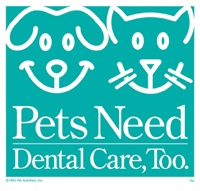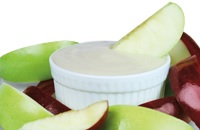 No, we are not going to the dogs, but February is National Pet Dental Health Month. So today, we’ll move from our mouths to theirs and give some great oral health tips for our favorite four-legged furry friends.
No, we are not going to the dogs, but February is National Pet Dental Health Month. So today, we’ll move from our mouths to theirs and give some great oral health tips for our favorite four-legged furry friends.
1. Sniff your pet’s breath. Most dogs and cats don’t have fabulous breath, but if it is really offensive, it could be a sign of dental disease or even gum deterioration.
2. Smile for the camera. About once a week, try to get Fluffy or Fido still and check their mouths fully, including their lips and teeth. You should see white teeth and pink gums. Be aware of any missing or broken teeth, which can often go unnoticed because pets will continue to eat even if they are having tooth issues. Any tooth issues, bumps or areas that are discolored are cause for a trip to the veterinarian.
3. Brush your dog’s teeth daily. There are plenty of products for brushing pet’s teeth. They really do work and they also give the owner a chance to look around at the teeth.
4. Use doggie dental chews. Doggie dental chews are terrific for removing bacteria and plaque. The evening is a great time to distribute these treats, just prior to bedtime. When you brush your teeth, doggie gets his dental chew.
5. See the veterinarian for well checks. Veterinarians will also check out pet’s mouths. Often a thorough examination may require anesthesia at a follow-up appointment.
Do you have pictures of your pet’s smiles? We would love to see them!





